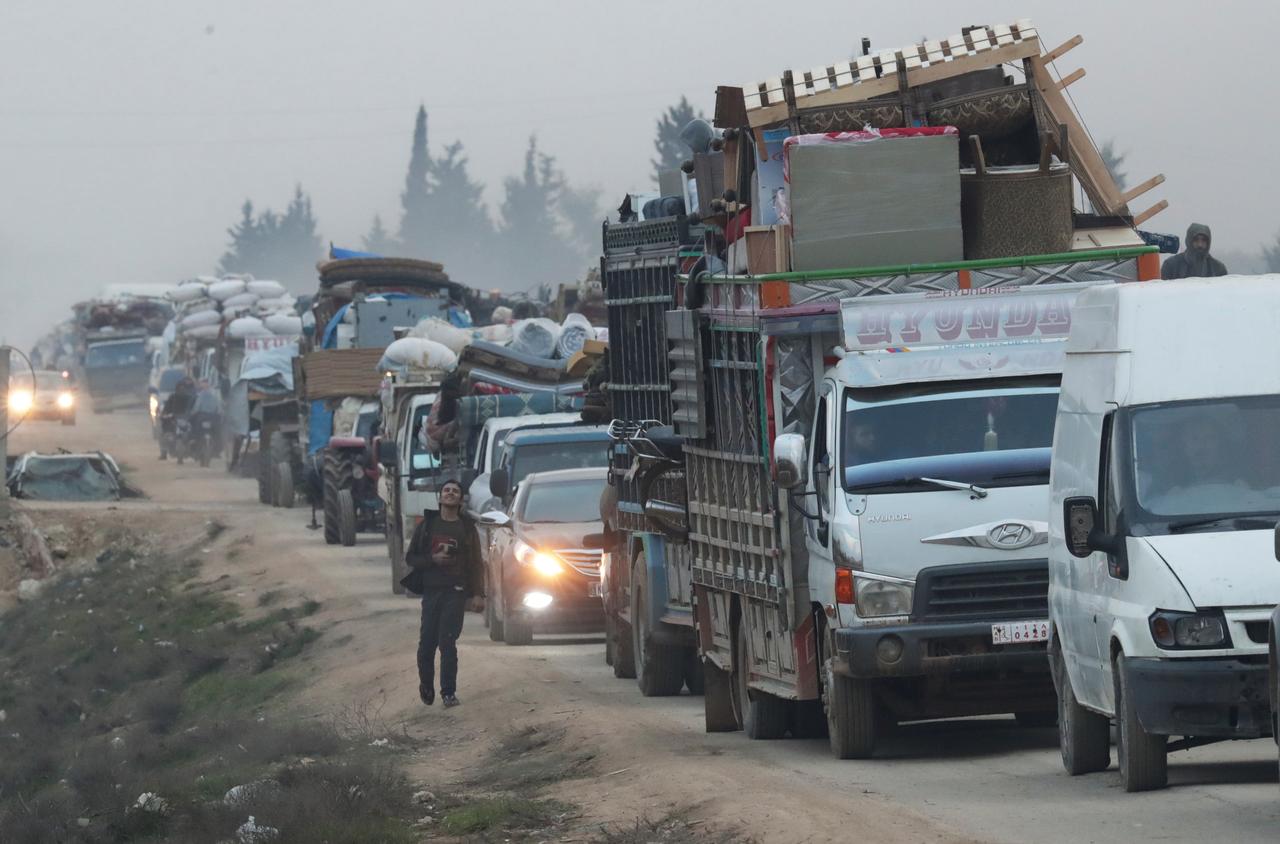International order increasingly fragile as Idlib awaits its fate
https://arab.news/53p6j

Western media focus on Syria stepped up again last week. Whether it was triggered by yet another UN Security Council session, with trenchant political comment from those criticizing the Syrian regime’s actions and attacks; another plea from UN humanitarian head Mark Lowcock, setting out the grim realities; or the awful coincidence that it was eight years since the death of journalist Marie Colvin, deliberately targeted and murdered by Syrian forces in Homs — it was a spike of interest that was welcome but tragic.
We have been anticipating a final direct assault on Idlib for some time. For years now, it has been a place where desperate families fleeing conflict have been heading if they could not find sanctuary elsewhere. They have been joined by a variety of more hostile elements, corralled there by events and fighting elsewhere, combining to swell the population to an unsustainable 3 million.
During this time, aid agencies — and governments supporting them — have done what they can to relieve the situation inside Idlib, while all the time warning of a potential catastrophe if the conflict fully engulfed the area. But, inexorably, the noose tightened and efforts to resolve matters by negotiation failed. Was this by accident or design?
Comments in New York last week could not have been clearer. UK Permanent Representative to the UN Karen Pierce said 93 percent of the civilian deaths in Idlib since January were caused by the Syrian government and its partners, challenging it and its UN Security Council ally Russia directly: “How can anyone justify carrying out such indiscriminate and inhumane acts?”
Lowcock declared that the “bombing of women and children living under scraps of plastic sheeting and in freezing conditions is cruel beyond belief... If hostilities reach areas packed with civilians, the human cost will be instant and huge.”
The particular circumstances could not be direr. But perhaps, this time, it is more than yet another human catastrophe, a casualty of conflict. If Idlib becomes what is feared, should we not just admit that we have finally reached the end of multilateral peacemaking efforts — anywhere — by the “international community?” It is not as if efforts, strenuous efforts, have not been made. Across Libya, Yemen and Syria, countless UN envoys have given all they could to seek agreements and end conflict. But the hard truth has to be faced. In Syria, as increasingly in conflict areas elsewhere, words of condemnation have no currency. The rules are made by those with the guns, bullets and missiles — on any side — and civilian populations are being left with no champions. The international order is increasingly fragile, and actions undermining it are connected. A land grab here, the overturning of previous agreements there — if delivered by those with might, then right inevitably follows these days. The strongmen, those controlling state and non-state forces, are taking note of what is now allowable.
If the UN, which, remember, is acting for all of us, cannot prevent a forthcoming massacre, then who will? And where do we head next?
The path to this particular hell has been paved with a number of intentions, both good and bad, and I have sat in on a few. No one comes out of this well, I am the first to admit. Syria is full of “what ifs.” What if those with the power to stop a war in its tracks had taken action when they could? What if the West had not been so paralyzed by the consequences of its decisions on Iraq, could it not have distinguished between effective and injudicious intervention and done something, instead of leaving the field open for a further six years of murder? What if just a few Syrian helicopters that were barrel-bombing civilians had been shot down in 2012 and prevented from carrying out their evil work when it began? Who knows what would have happened.
In Syria, as increasingly in conflict areas elsewhere, words of condemnation have no currency.
Alistair Burt
Whatever the mistakes of the past, it is not too late to save those men, women and children who are still alive and caught up in Idlib. The bombardment must stop now. The allies of the regime must say enough is enough, the constitutional process must be seriously supported, and the UN veto should stay in the hand and not be used — Syria and its people might then have a chance of a future.
But, if they do not, and if UN peacekeepers and envoys do not carry the weight they should, the world’s descent toward what the international order saved us from post-1945 will take another touch on the accelerator. And, to all the surgeons working on the front line, the journalists risking their lives, the families of the dead, and those left behind who will seek revenge, just what will we say?
- Alistair Burt is a former UK Member of Parliament who has twice held ministerial positions in the Foreign and Commonwealth Office — as Parliamentary Under Secretary of State from 2010 to 2013 and as Minister of State for the Middle East from 2017 to 2019. Twitter: @AlistairBurtUK







































